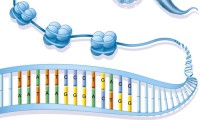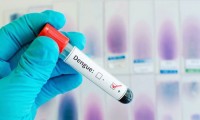-
Cancer cells destroyed in just 3 days with new technique
- Source: medicalnewstoday
- 677
- November 8, 2017
-
Black Death and incurable Marburg Virus now spreading across Africa’s cities
- Source: naturalnews
- 1,129
- November 8, 2017
-
Increasing rates of chronic conditions putting more moms, babies at risk
- Source: Medicalxpress
- 390
- November 8, 2017
-
Merck, Pfizer launch Bavencio for rare skin cancer
- Source: Pharmatimes
- 488
- November 7, 2017
-
Moderna Announces New Collaboration with AstraZeneca
- Source: Modernatx
- 465
- November 7, 2017
-
Watch out Sanofi–Takeda’s new data on dengue vaccine is good news for PhIII trial
- Source: endpts
- 943
- November 7, 2017
-
Men with low testosterone less likely to have prostate cancer
- Source: medicalnewstoday
- 574
- November 7, 2017
-
Scientists discover potential treatment to stop glaucoma in its tracks
- Source: Medicalxpress
- 492
- November 7, 2017
-
Teva looks to sell generics in China through joint venture with Guangzhou Pharma
- Source: Fiercepharma
- 526
- November 7, 2017
-
New tissue-engineered blood vessel replacements one step closer to human trials
- Source: worldpharmanews
- 539
- November 7, 2017
your submission has already been received.
OK
Subscribe
Please enter a valid Email address!
Submit
The most relevant industry news & insight will be sent to you every two weeks.













